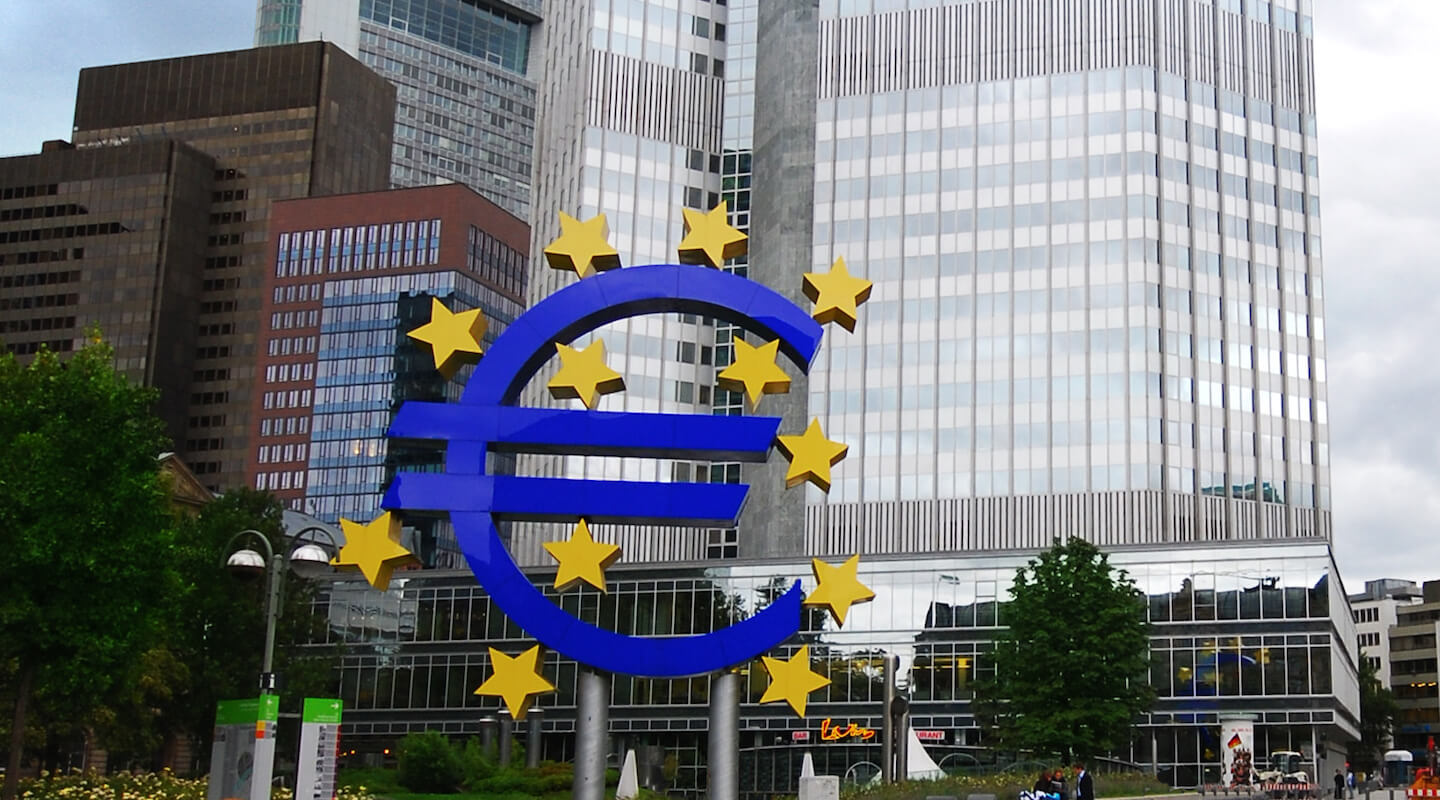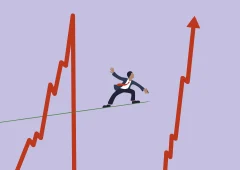ECB Signals Caution After Rate Cut as Euro Gains Ground
18.07.2024 21:00 1 min. read Alexander Stefanov
Traders bolstered the euro on Thursday amid signals from the European Central Bank (ECB) of cautious post-rate-cut plans, easing previous concerns over French political turmoil.
The ECB maintained its deposit rate at 3.75% after June’s cut from 4%, the first in five years, with President Christine Lagarde emphasizing flexibility in future rate decisions.
Federal Reserve Chair Jerome Powell’s confidence in U.S. inflation moderation temporarily boosted the euro over 2% against the dollar this month, recovering from June’s 1% dip. Market analysts noted reduced fears of French political risks and expected Fed rate cuts, softening the dollar against major currencies.
However, the euro faced challenges against the Swiss franc and sterling, with concerns over potential dollar strength if Donald Trump is re-elected due to proposed import tariffs impacting the eurozone.
Currency markets foresee more Fed rate cuts than ECB cuts by year-end, reflecting weakening dollar support. The dollar index dropped 2% in July, contributing to the euro’s recovery from June’s political instability in France and fiscal concerns in the eurozone.
While fears of a eurozone fiscal crisis have eased, lingering risks include global trade conflicts and Trump’s tariff threats, which could affect eurozone exports.
ECB President Lagarde highlighted these growth concerns amid a cautious approach to future rate adjustments. Analysts expect modest euro movements against the dollar, anticipating gradual ECB rate cuts ahead.
-
1
U.S. PCE Inflation Rises for First Time Since February, Fed Rate Cut Likely Delayed
27.06.2025 18:00 1 min. read -
2
Key U.S. Economic Events to Watch Next Week
06.07.2025 19:00 2 min. read -
3
Gold Beats U.S. Stock Market Over 25 Years, Even With Dividends Included
13.07.2025 15:00 1 min. read -
4
U.S. Announces Sweeping New Tariffs on 30+ Countries
12.07.2025 16:30 2 min. read -
5
US Inflation Heats Up in June, Fueling Uncertainty Around Fed Cuts
15.07.2025 16:15 2 min. read
US Inflation Heats Up in June, Fueling Uncertainty Around Fed Cuts
U.S. inflation accelerated in June, dealing a potential setback to expectations of imminent Federal Reserve rate cuts.
Gold Beats U.S. Stock Market Over 25 Years, Even With Dividends Included
In a surprising long-term performance shift, gold has officially outpaced the U.S. stock market over the past 25 years—dividends included.
U.S. Announces Sweeping New Tariffs on 30+ Countries
The United States has rolled out a broad set of new import tariffs this week, targeting over 30 countries and economic blocs in a sharp escalation of its trade protection measures, according to list from WatcherGuru.
Key U.S. Economic Events to Watch Next Week
After a week of record-setting gains in U.S. markets, investors are shifting focus to a quieter yet crucial stretch of macroeconomic developments.
-
1
U.S. PCE Inflation Rises for First Time Since February, Fed Rate Cut Likely Delayed
27.06.2025 18:00 1 min. read -
2
Key U.S. Economic Events to Watch Next Week
06.07.2025 19:00 2 min. read -
3
Gold Beats U.S. Stock Market Over 25 Years, Even With Dividends Included
13.07.2025 15:00 1 min. read -
4
U.S. Announces Sweeping New Tariffs on 30+ Countries
12.07.2025 16:30 2 min. read -
5
US Inflation Heats Up in June, Fueling Uncertainty Around Fed Cuts
15.07.2025 16:15 2 min. read


